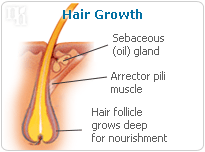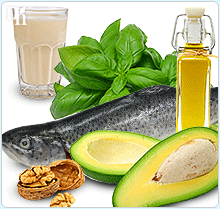For many women, their hair is a big part of their identity, so hair loss can be upsetting. Even so, hair thinning and hair loss during postmenopause are common. Many women will experience hair loss caused by hormone imbalance, although the severity will be different for all women. Nevertheless, there are different treatments available to help women with their hair loss caused by hormonal imbalance. Thus, it is important to keep hormone levels balanced in the body.
What Causes Hair Loss during Postmenopause?

Hair loss happens when the hair follicles become too sensitive due to a surge in the levels of the hormone dihydrotestosterone (also known as DHT), which is made from the hormone testosterone. Thus, hair loss occurs when there is an increase in testosterone hormones that then cause an increase in DHT. Hair follicles are extremely sensitive to DHT, and it causes them to become thinner and for hair to grow at a slower rate.
How Can Hair Loss Caused by Hormonal Imbalance Be Prevented?
Hair loss caused by hormone imbalance can be prevented in a number of different ways. However, firstly it is important that women look after their bodies. A healthy, fit body is more able to keep its hormone levels balanced; thus, it is vital that menopausal women take regular, moderate exercise and eat a diet that is rich in fruits, vegetables, and fish. Nevertheless, there are certain “super foods” that help fight hair loss caused by hormone imbalance.

Avocado, olive oil, nuts and seeds, fish, and soy milk.
Foods rich in vitamin B. Liver, oats, avocado, banana, Brazil nuts, and turkey.
Foods rich in iron. Clams, oysters, muscles, beef liver, pumpkins seeds, lentils, and beans.
Foods rich in omega-3 fatty acids. Salmon, walnuts and almonds, dark green leafy vegetables, avocado, olive oil, and whole grain foods.
Foods rich in sulfur. Cabbage, garlic, beans, and eggs.
These foods help prevent hair loss by balancing hormone levels; however, they are not miracle cures. It is also important for women to avoid over-styling their hair, because this causes it to become brittle and to break.
Hair loss happens naturally with age, especially during the unpleasant and troublesome stage of menopause; however, there are different treatments available. For example, there are various creams and steroid tablets that can be prescribed by a medical practitioner. Click on the following link for more information about treating hair loss caused by hormone imbalance.